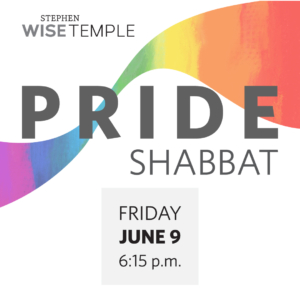There is a strange ritual detailed in last week’s Torah portion, called the Sotah. It seeks to allay the concerns of a jealous husband by proving the innocence or guilt of the wife he suspects of adultery. (Read an analysis here.) Under the guidance of the Kohan, the woman drinks a special concoction mixed from the dust of the Tabernacle’s floor as the priest recites an incantation. If she’s innocent, she goes home cleansed of guilt; if she’s guilty, the Torah says that her thighs will sag and her belly distend. Given the exceedingly low probability of that happening solely as a result of drinking the mixture, it’s more than likely that she’ll be sent home to her husband exonerated. Now, from a modern perspective, there are countless issues with this practice, chief among them that there is no equivalent ritual to prove a man’s innocence or guilt.
Scholars suggest that the true goal of the ritual is to mitigate the husband’s irrational jealousy and preserve the marriage. Though strange to us, it’s highly likely that this was our ancestors’ way of dealing with the extremes of passionate emotion that can too often impel us to actions which we later regret. This is just one of the numerous examples in the Torah where the impulsive and often destructive proclivities of human nature are moderated by legislation. Of course, written centuries ago, the Torah’s perspectives are often quite different from our own, but the extent to which they pose important questions reflects the way the Torah still brings deep meaning to our lives. I’d like to reframe the question posed by the Sotah ritual in our present context.
There are few places where emotions are more fraught than those surrounding the issues associated with LGBTQ+ rights. Whether it’s gender identity or sexual orientation, the rush to judgment and condemnation creates an atmosphere of fear and hostility. And yet, I’ve seen dramatic changes of perspective when those who’ve expressed resistance discover that a loved one identifies as LGBTQ+. Just as the Sotah ritual seeks to restore a family riven by a rush to judgment, we might consider how the currents of misunderstanding and opposition undermine the wholeness of LGBTQ+ individuals and their families. We have yet to create a ritual for coming out, but when our clergy bless queer marriages with a full Jewish ceremony, we are incorporating the voice of tradition in ways that embrace those couples. Can we open our hearts, overcome our judgment, and extend a hand of understanding and compassion to those whose gender and sexual identities are different from our own?
—Rabbi Ron Stern
We hope you celebrate with us this Friday at our Pride Shabbat. On Sunday, we invite you to join our clergy and other members of our community as we march in the L.A. Pride Parade. Wise will be walking as part of Unity in Community, a group of walkers that includes a wide cross-section of the L.A. Jewish community. Wise is a proud co-sponsor of Unity in Community, joining Temple Israel of Hollywood, Temple Akiba, IKAR, Jewish Center for Justice, Leo Baeck Temple, Nefesh, Temple Emanuel, Kehilat Israel, Kol Ami, Temple Isaiah, Temple Beth Hillel, Beth Chayim Chadashim, and Hillside Memorial and Mortuary.

